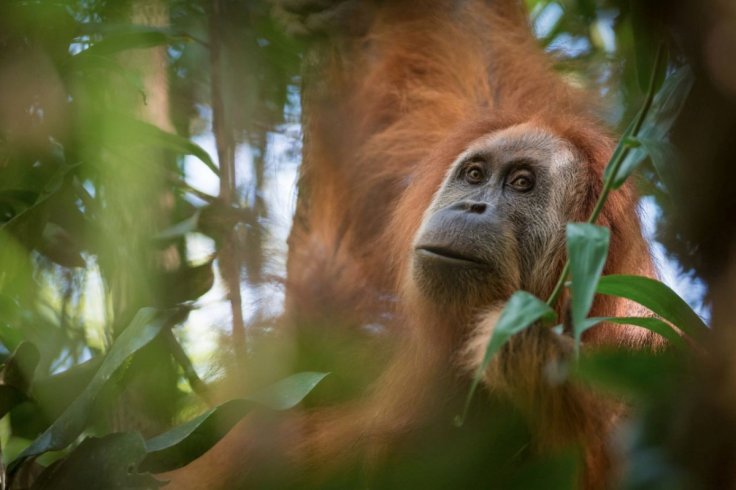
A Bornean orangutan was found stabbed to death and floating in a river in Indonesia's Central Kalimantan province. The body of the wildling was found on Tuesday, January 16.
This case, according to conservation officials happens to be the latest one in the list of "unnatural deaths" of the critically endangered species.
Adib Gunawan, head of the Natural Resources Conservation Agency, said that the great ape was found floating in a nearby river and apparently had been dead for the last two days at least. He told Reuters that the animal must have been stabbed with a sharp tool and that investigation is still on. Two orangutans were found dead last year as well. Their bodies were discovered in East Kalimantan.
There are only 104,700 Bornean orangutans or Pongo pygmaeus left in the world, according to World Wildlife Fund. This species is known for their broad faces and dark brown fur. The fur makes them vulnerable to poaching.
Kalimantan in Indonesia is the native place of the orangutans. Known for its vast palm oil and coffee plantations, these industries disrupt the ecosystem as most of these plantations grow on deforested land. As per reports, plantation workers end up killing or capturing animals when they encounter one.
IUCN Red List
According to IUCN data, the Bornean orangutans are lowland forest creatures. In the 1950s the habitat for the orangutans extended across 255,000 km² of the island of Borneo. However, the population of this species has sharply declined and the Bornean family of orangutans have been included in IUCN's Red List. Deforestation, hunting, recurring forest fires are the major cause of the decline.
Bornean orangutans decreased by 60 percent between 1950 and 2010. Loss of habitat due to forest conversion for industrial purposes led to 56 percent decline since 1973.
Illegal hunting in Kalimantan took the lives of 630-1,357 Bornean orangutans in 2008. On average 2,383-3,882 orangutans are killed per year. The population of the species declined by 2.6 percent in Kalimantan due to poaching. The combined effects of habitat loss, deforestation, forest fires and illegal hunting by 2025 can reduce the populations of the great apes by 86 percent. Hence, in three generations (1950-2025) the species is expected to see a decline by 80 percent.









